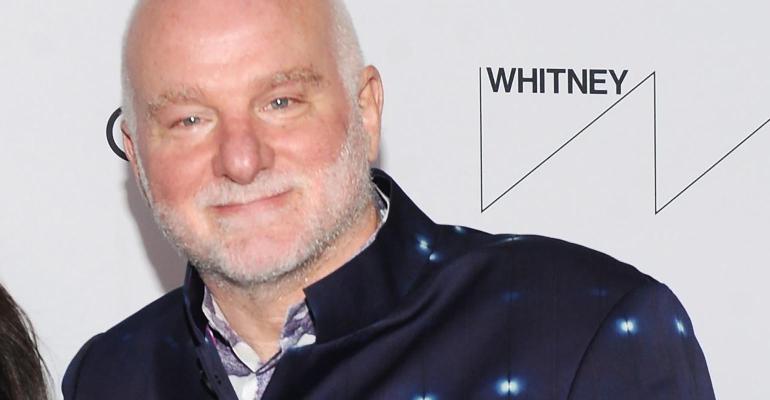(Bloomberg) -- Wealthy investors are nervous.
So nervous that they’re lining up second passports, but not so nervous that they’re straying from tried-and-true investments like private equity. That’s according to Michael Sonnenfeldt, the founder and chairman of Tiger 21, a worldwide network of more than 1,200 high-net-worth investors with assets totaling more than $135 billion.
“It’s totally perplexing,” Sonnenfeldt said in an interview with Bloomberg News, referring to the mixed messages currently being sent by Tiger 21’s members.
Here’s what he thinks is going on in their minds and portfolios. The excerpts have been edited for length and clarity.
Q. What is the general attitude toward risk among members today?
A. The mood is that we have more mixed signals than we’ve ever had to process before, maybe with the exception of the great financial crisis, when things moved so quickly it took your breath away. Things are moving more slowly but they are more confusing than ever because we don’t know how to weigh where Ukraine is going. What comes up most in discussions is to what extent the outcome in Ukraine emboldens China to invade Taiwan, the center of microprocessor manufacturing.
This notion of the fragility of democracy has a lot of people wondering about how fragile the structures of society are that we take for granted. People are comfortable with their individual business choices, but see this kind of landscape effect of being at war for the first time since World War II in Europe, and with China doing what it’s doing, and Iran and Israel, and it feels like a lot of macroeconomic uncertainty.
One interesting trend is that the interest in second-country passports has got to be at an all-time high. There are countries around the world, like New Zealand and Portugal, some Caribbean islands, with programs where you can apply for citizenship and get a passport. The instability in the US is kind of like what’s happening in Israel with the right-wing government — a lot of Israelis are making sure they have second passports.
It creates an optionality that more people are concerned about, with the 2024 election coming up, than maybe ever before in history. But many of these countries are now closing the loopholes.
Read more: US Is No Longer the Millionaire Magnet It Was Before the Pandemic
Q. How does that square with cash allocations being lower than normal?
A. In a million years I wouldn’t have predicted that cash would go down at this time when, as of 2022’s fourth quarter, more than half of members thought we were headed into a recession. Cash has been the steadiest allocation for 15 years — literally like tied to a rock at 12%. So being at 10% is significant. I think in the past year members have found some compelling private equity investments and been willing to borrow from their cash account for a while.
Q. Many members made their money in private equity and real estate — is that where the bulk of assets remain?
A. Members have about 80% in public equity, private equity and real estate, the highest in 15 years or more. Private equity just topped 31% in member portfolios — an all-time high. Fifteen years ago, PE was 10%. As far as we can tell, the biggest growth within that allocation is venture capital.
Since our members made most of their wealth in PE and real estate, it’s no surprise that when they’re preserving wealth they fall back on what they have expertise in. As things are getting more confusing, members rely more on the things they know best, which are basic business investments. Long-term, solid businesses and real estate have come through for them year in, year out, decade in, decade out, and members have this abiding faith in the meat-and-potatoes of business. That’s where they get the most comfort and security.
Personally, in my own investment company, we were recently looking at where to put some money that had been distributed from another investment. Typically, we’d want to deploy it quickly, but for the first time in 20 years we said, let’s put it in Treasury bills for six months. You can earn 4.5% on six-month Treasuries, so that’s become a viable cash management tool — as it had been for generations, just not in the past 15 years.
Q. What allocation do members have in public markets?
A. It’s down from 28% or 29% a year ago to 23% to 24%, mostly because of the drop in value, not because people liquidated. Members are split between whether they think the public market will go up or down in 2023.
Historically, portfolios had a lot of Berkshire Hathaway and Apple and high-tech companies, but the allocation is shifting more toward indexes and ETFs. Members are a little concerned about tech but are long-term believers, so probably have a weighting in tech ETFs or some direct investments in tech companies.
Q. How do members view cryptocurrency?
A. Bitcoin and crypto are in the 1% to 3% range in portfolios. For members who believe they have a fundamental and clear understanding of crypto, and like it for those reasons, they’re in it for the long-term and saw the past year as a buying opportunity. Even if they didn’t double down, they didn’t liquidate.
To contact the author of this story:
Suzanne Woolley in New York at [email protected]





